The Napoleon Festival celebrates Napoleon through Film Screenings, Conferences, Performances, Ceremonies, in the elegant setting of the Cinema Club de l’Etoile in Paris. Created by baritone and producer David Serero, this festival returns for its second edition with an even bigger program over two days.
The first edition was crowned with success with the exceptional presence of the actor Christian Clavier, who received the Prix Napoléon d’Honneur, as well as the most eminent Napoleon specialists including Mr Jean Tulard, Thierry Lentz, David Chanteranne, Jean-Pierre Osenat .
Napoleon Bonaparte worked throughout his career to maintain a complex relationship with religions. They were mainly four to count in his personal and political journey: Catholic, Protestant, Muslim and Jewish.
Regarding the latter, he offered a new status to the members of the community in Italy (in particular in the ghetto of Venice), brought together the Grand Sanhedrin and allowed individuals to access a freedom never envisaged until then. This conference will discuss the various actions undertaken and the relations maintained with the rabbis and the Jewish authorities, in France and across Europe.
Napoleon meets the first Jews in Italy
Napoleon’s personal journey partly explains the stages in the construction of a recognized status for the Jews of France. Napoleon first encountered a Jewish community in Italy on February 9, 1797, in the city of Ancona during the Italian campaign. The Jews then live there in a confined ghetto and cordoned off at night. They wear yellow caps and armbands with the Star of David which allowed them to be identified.
He then orders the yellow hat and the armband to be removed from them and the tricolor cockade to be replaced. It is the first symbolic decision of the general, future emperor, who then gives more concrete instructions so that the community finally has access to freedom of worship and movement.
Measures which subsequently apply to the Jews of Rome, Venice, Verona and Padua. Napoleon abolishes the laws of the Inquisition, and the Jews are considered as ordinary free men enjoying their rights in Italy.
The Jews accepted the rules laid down by the Empire
In 1807, Napoleon invited an assembly of 111 Jewish notables appointed by the prefects, then convened for a month a large Sanhedrin (meeting of the chief rabbis) in order to receive clear and unambiguous answers to a series of questions:
- « Is it lawful for Jews to marry several wives? »
- « Is divorce permitted by the Jewish religion? »
- « Can a Jewess marry a Christian and a Christian a Jew? »
- “Do Jews born in France and treated by law as French citizens regard France as their homeland? Do they have an obligation to defend it? Are they obliged to obey the laws and follow the provisions of the Civil Code?”
- « Who appoints the rabbis? » etc
Comply with the rules of the Civil Code
The response of secular and religious representatives of Judaism will be unanimous.
To the first two questions, the answer given will be as follows: « It is forbidden for the Jews of all the States where polygamy is prohibited by the civil laws, to marry a second wife during the lifetime of the first, unless a divorce with it, pronounced in accordance with the provisions of the Civil Code and followed by religious divorce, has freed them from the bonds of marriage.
The thorniest issue had to do with mixed marriages. It gave rise to lively discussions between rabbis and lay people.
The Grand Sanhedrin finally declares that “marriages between Israelites and Christians, contracted in accordance with the laws of the Civil Code, are valid; though they are not likely to be clothed in religious forms, they will incur no anathema”.
To the question of the attachment of the Jews to France, the answer will also be unanimous: « France is our homeland, the French are our brothers ». « The Jews are ready to defend France to the death. » What they will do during the two great world conflicts of the 20th century.
The speaker David Chanteranne is a historian and art historian, a graduate of the University of Paris-Sorbonne, journalist and writer, he gave us a little reminder of what Napoleon was able to put in place with the community where he was close to always helping the Jewish community to integrate into French society under the regime of the Emperor Napoleon.
The exact delimitation of the legal powers of the rabbis was of great interest to the emperor. Napoleon proposed an “organic regulation of the mosaic cult” on the model of Protestantism, published on March 17, 1808, of which here are the main provisions:
- “There will be established a synagogue and an Israelite consistory in each department containing 2,000 individuals professing the religion of Moses…
Each particular synagogue will be administered by two notables and a rabbi, who will be appointed by the competent authority.
The functions of the consistory are to see to it that the rabbis cannot give, either in public or in private, any instruction or explanation of the law which is not in accordance with the doctrinal decisions defined by the great Sanhedrin. - « Each consistory will propose to the competent authority a plan of distribution among the Jews of the circumscription, for the payment of the salary of the rabbis. »
A rabbi must speak French…and Greek
-“No rabbi can be elected: if he is not native or naturalized French (or Italian from the Kingdom of Italy); if he does not know the French language in France. He who joins, to the knowledge of the Hebrew language, some knowledge of the Greek and Latin languages will be preferred, all other things being equal.”
– “The functions of the rabbis will be: to teach the religion and the doctrine contained in the decisions of the great Sanhedrin; to recall in all circumstances obedience to the laws, in particular and in particular to those relating to the defense of the fatherland… to solemnize marriages and declare divorces, provided, of course, that the interested parties have justified, beforehand, of the civil act of marriage or divorce.
The emancipation of the Jews in Europe
This regulation was supplemented by the decree of December 11, 1808 on the organization of consistories. It bears the Napoleonic stamp: the rabbinical authority is largely placed under the supervision of the lay representatives of the communities. The creation of a Jewish consistory in 1808 is still today one of the two pillars (along with the Crif Representative Council of Jewish Institutions in France, created in 1944), of the organization of Judaism in France.
This official and mutual recognition will contribute to a religious peace which will persist until the Vichy regime. The emancipation of the Jews of France will be seen by part of Europe as a great step forward. Napoleon, who during his Italian campaign liberated the ghettos of Venice, Ancona, and Rome… will be perceived by the Jews as a great liberator, except by the ultra-Orthodox fringe who will see in it the danger of a “loss of identity” . « Happy as God in France », will become an emblematic expression of the Jewish communities of Europe.
Napoleon’s opera and propaganda is his glory as Emperor
During his reign, he therefore helped to forge opera and ensured the smooth running of music. The Emperor had understood that music and opera could be instruments of propaganda at the service of his political action.
Napoleon’s work is not only military and political, it is also artistic.
The speaker David Chaillou, doctorate in contemporary history (thesis director: Jean Tulard). Politics on the stage, history of the works created at the Paris Opera from 1810 to 1815. Very honorable mention with congratulations from the jury. Paris IV‐Sorbonne 2001. He gave us a little reminder of what Napoleon was able to put in place with music, where Napoleon was always close in this respect, he wishes to take advantage of cultural places such as theaters or even more opera to praise the Empire. So that the artistic work could be instruments of propaganda at the service of its political action, in French society.
Obviously, the Emperor’s interest in opera stemmed from other than musical motivations. It is the sovereign and not the music lover who decides to privilege this scene. He will have an incomparable propaganda tool there to build his legend during his lifetime.
Napoleon will also intervene directly in the themes and the choices of the works via his superintendent Auguste Laurent de Rémusat, who will transmit the Emperor’s instructions to the Director of the opera Louis Benoit Picard.
The themes of the operas will therefore be chosen for their coincidence with the wishes of the Emperor (restoration of the moral order, military conquests, among others). A « reading jury » was created in 1798, responsible for examining the librettos likely to be worn on the stage.
The Emperor exercises a right of inspection over the posters which, according to the monopoly of 1807, are made up of pieces in the French language.
Moreover, the members of the committees are appointed by the supervisory authority under the influence of Napoleon.
The repertoire will be divided into two types of works: so-called “circumstances” works and “creations”, according to David Chaillou.
The opera « of circumstances » is a work created especially for an event, or an occasion.
On March 27, 1811, an opera-ballet, Le Triomphe du Mois de Mars ou le Berceau d’Achille, composed by Rodolphe Kreutzer, to a libretto by Emmanuel Dupaty (1775-1851), was performed at the Imperial Academy of Music. to celebrate the birth of the King of Rome on March 11.
This work is the most representative of the « work of circumstances » during the Napoleonic period, so that the allusion is well understood. The play ended with the descent onto the stage of a cradle strewn with bees, identical to that which the city of Paris had offered to the heir to the throne.
L’Oriflamme, an opera performed on February 1, 1814, to a libretto by Pierre Baour-Lormian (1770-1854), composed by Etienne-Nicolas Méhul, Ferdinando Paër (1771-1839), Rodolphe Kreutzer and Henri-Montan Berton, who will compose the final hymn « swear to be valiant, to be faithful ». The opera compares Napoleon to Charles Martel fighting the Saracens who, in fact, represent the Prussians and Russians invading France. The goal is clear: to restore national pride for a last fight that will guarantee peace.
The opera « creations » was mainly made up of new works, favored to the detriment of pieces from the repertoire.
The creations will be, for the most part, works of propaganda. The choices of the reading jury will relate to a repertoire of which antiquity and religion are the privileged sources of inspiration. The themes are the exaltation of greatness and heroism, which favors points of comparison with Napoleon.
The Inauguration of the Temple of Victory, a patriotic interlude that celebrates Napoleonic victories; then, on October 23 of the same year, the Triumph of Trajan, these are works which include military parades, with horses, and the spectators are led to make a connection between Trajan and the Emperor of the French.
Napoleon always knew how to take care of his image and his legend.
The imperial censorship, figure the suppression everywhere, of the requested corrections. He knew how to use the press, the arts and, in particular, the particularly interesting opera for this purpose, because one can easily adapt the booklets and convey messages according to the objectives. Then there is the staging, therefore the sets which were, in this case, sumptuous and grandiloquent, in keeping with the chosen subjects, often to the glory of the Emperor.
Napoleon supervised the Opera through his confidant, Count Rémusat, superintendent of subsidized theatres. He wanted to be aware of everything that was done or played there.
Napoleon made the Opera a theater to his glory: censorship and self-censorship, infiltrating artists, control of the administration. From there an astonishing gallery of portraits where the true creators – Spontini, Le Sueur, Kreutzer, Cherubini, Méhul… – rub shoulders with servile courtiers and men of the apparatus. All these elements never brought to light add a very new page to the political and cultural history of French society.
A new date for the Napoleon Day remains set for February 12.
- 14h: Screening of the film « ADIEU BONAPARTE » in a restored version.
- 17h: Conference « NAPOLEON, EGYPT AND ISLAM » by Ahmed Youssef.
- 7 p.m.: Ceremony – Presentation of the Napoleon Festival Prizes.
PLACE: CINEMA CLUB DE l’ETOILE (14 rue Troyon, 75017 Paris).
The price for each event is 10 euros.
Pass for the whole day: 25 euros (Entry to the 3 events).
Views: 0



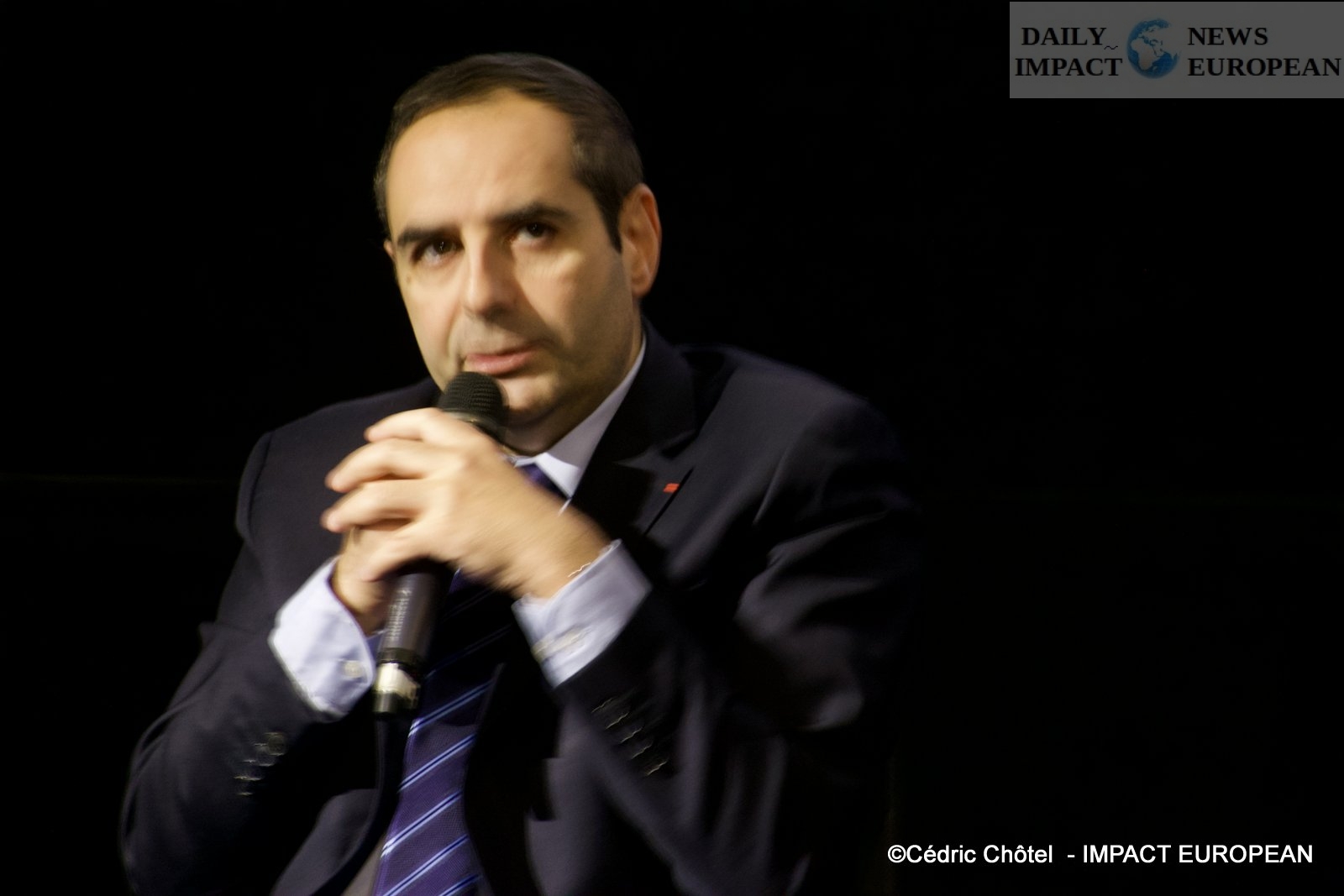


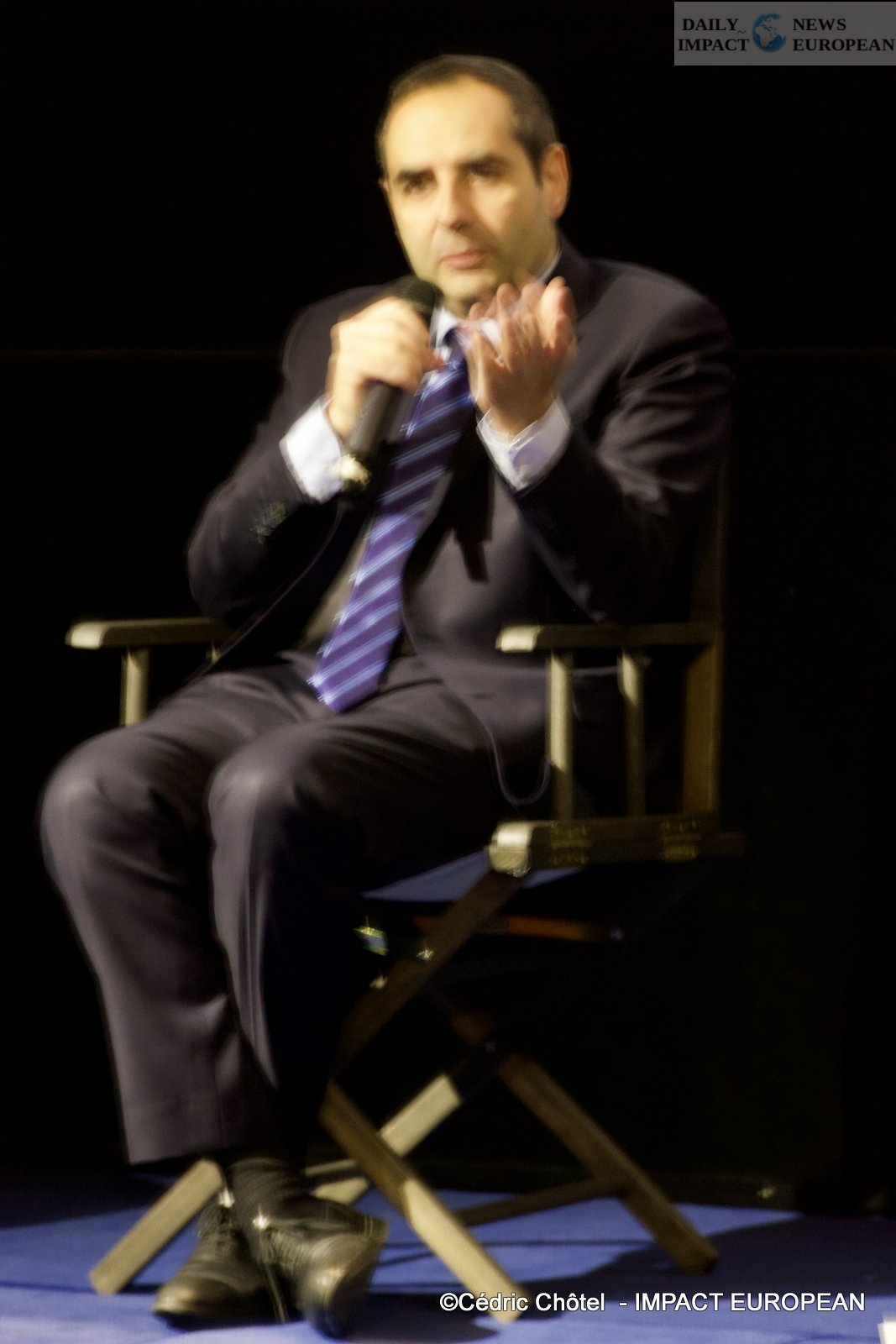
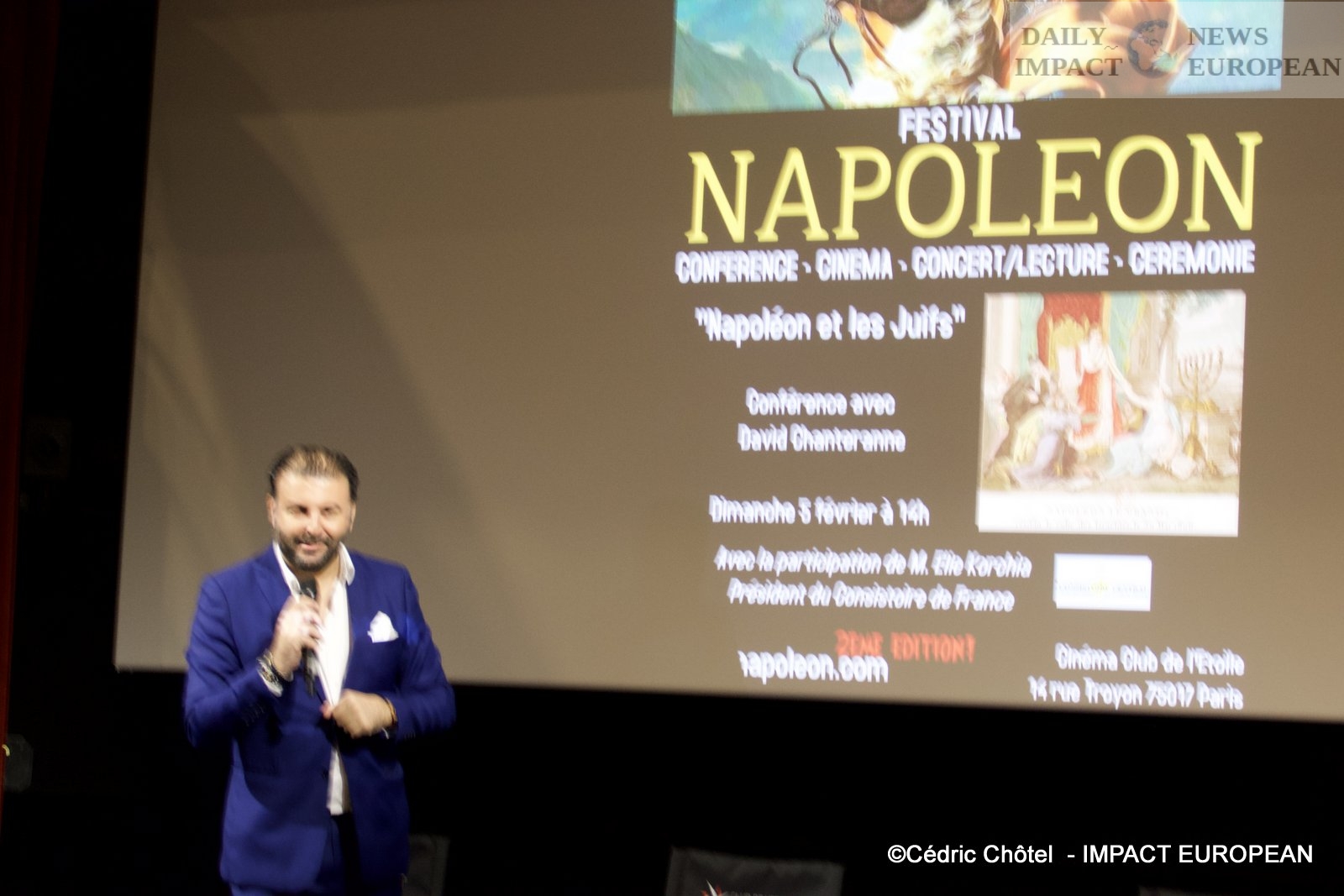
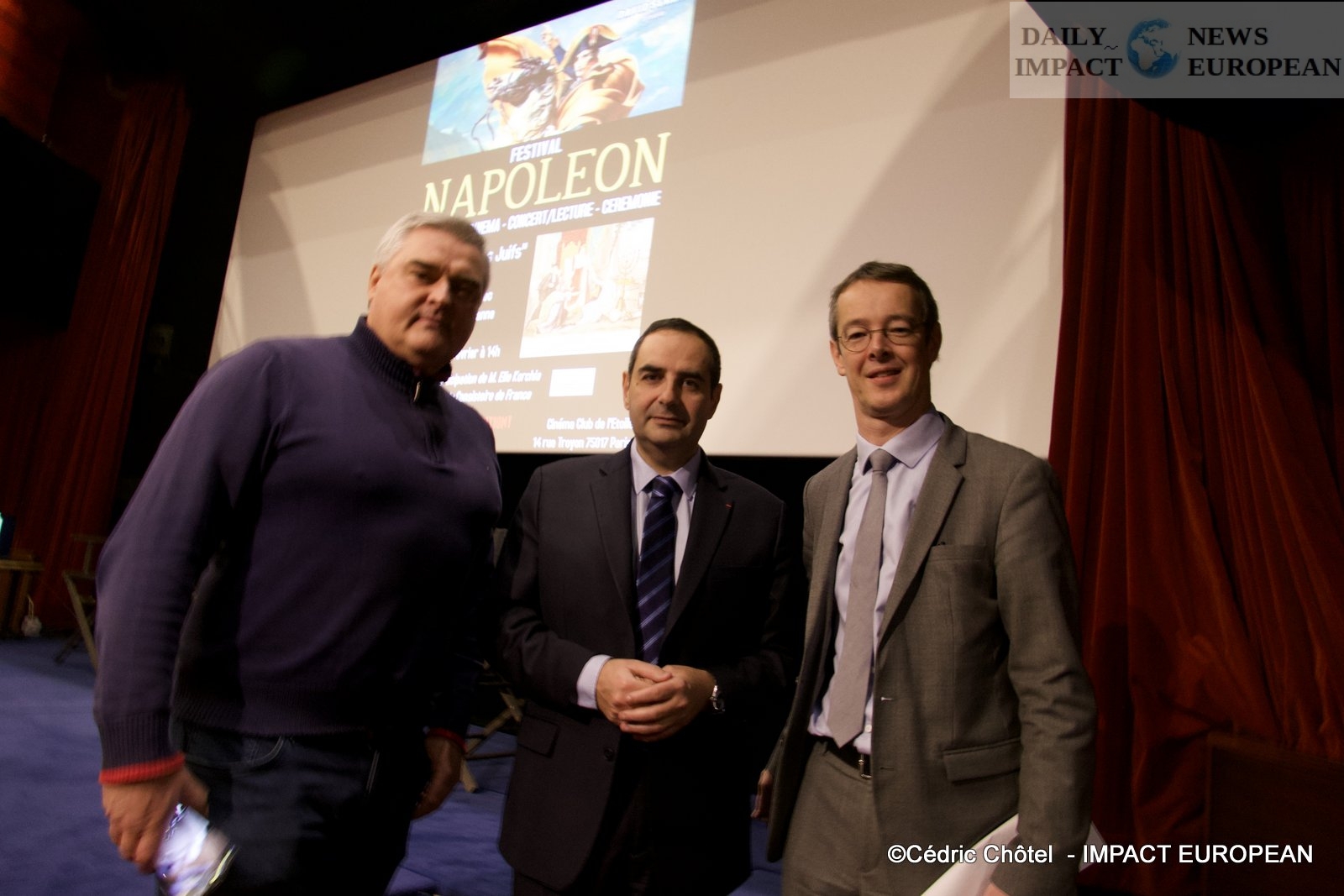
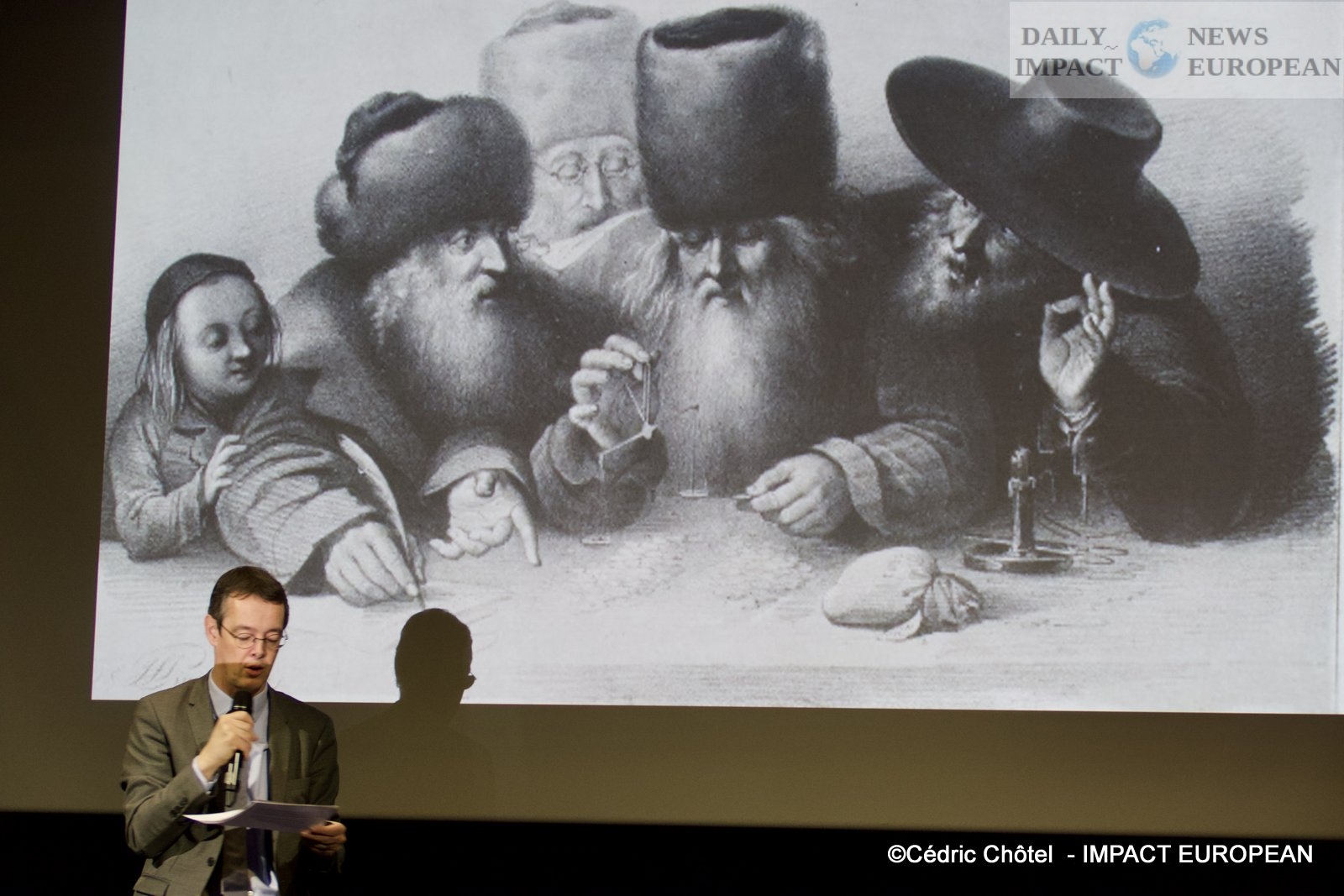

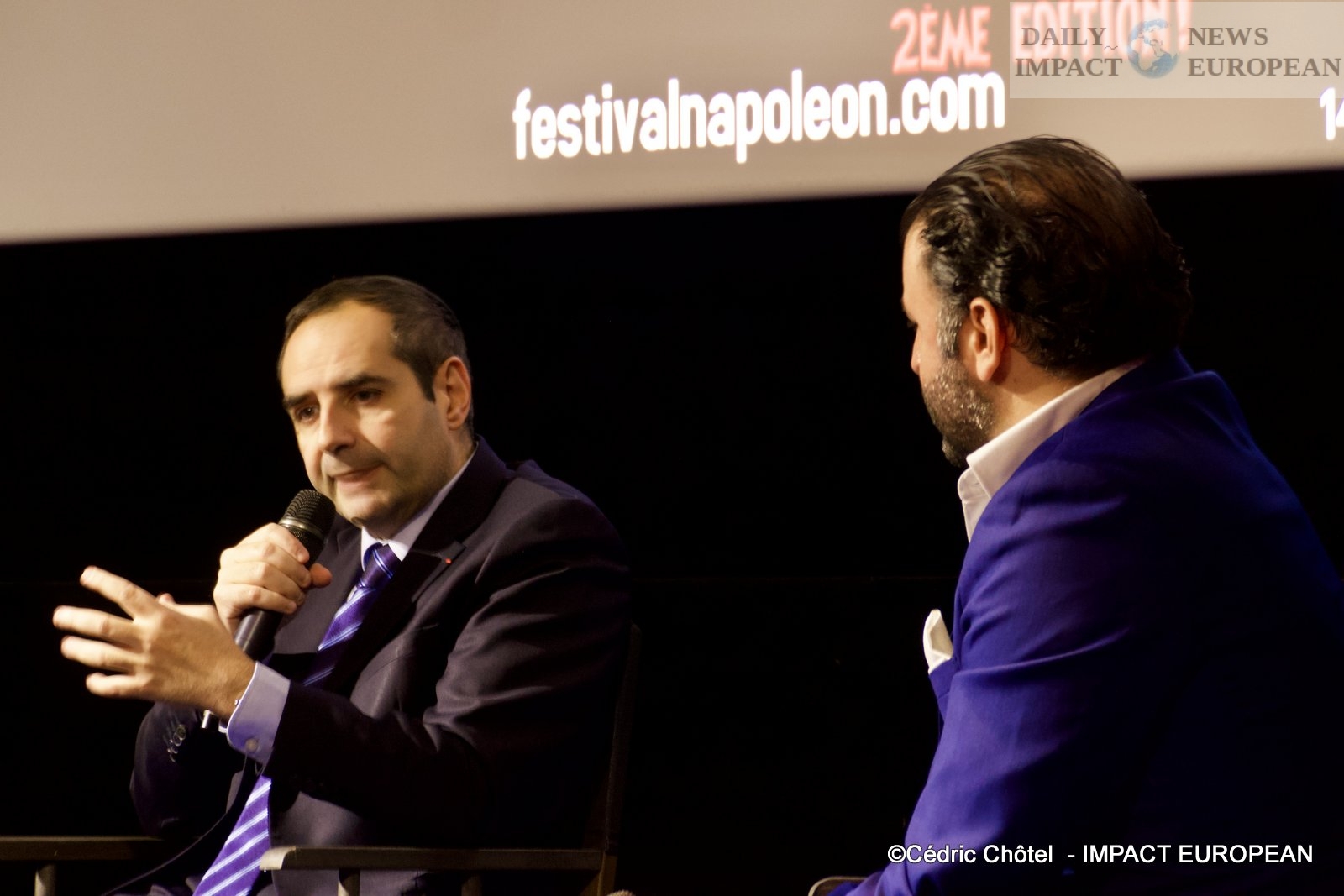


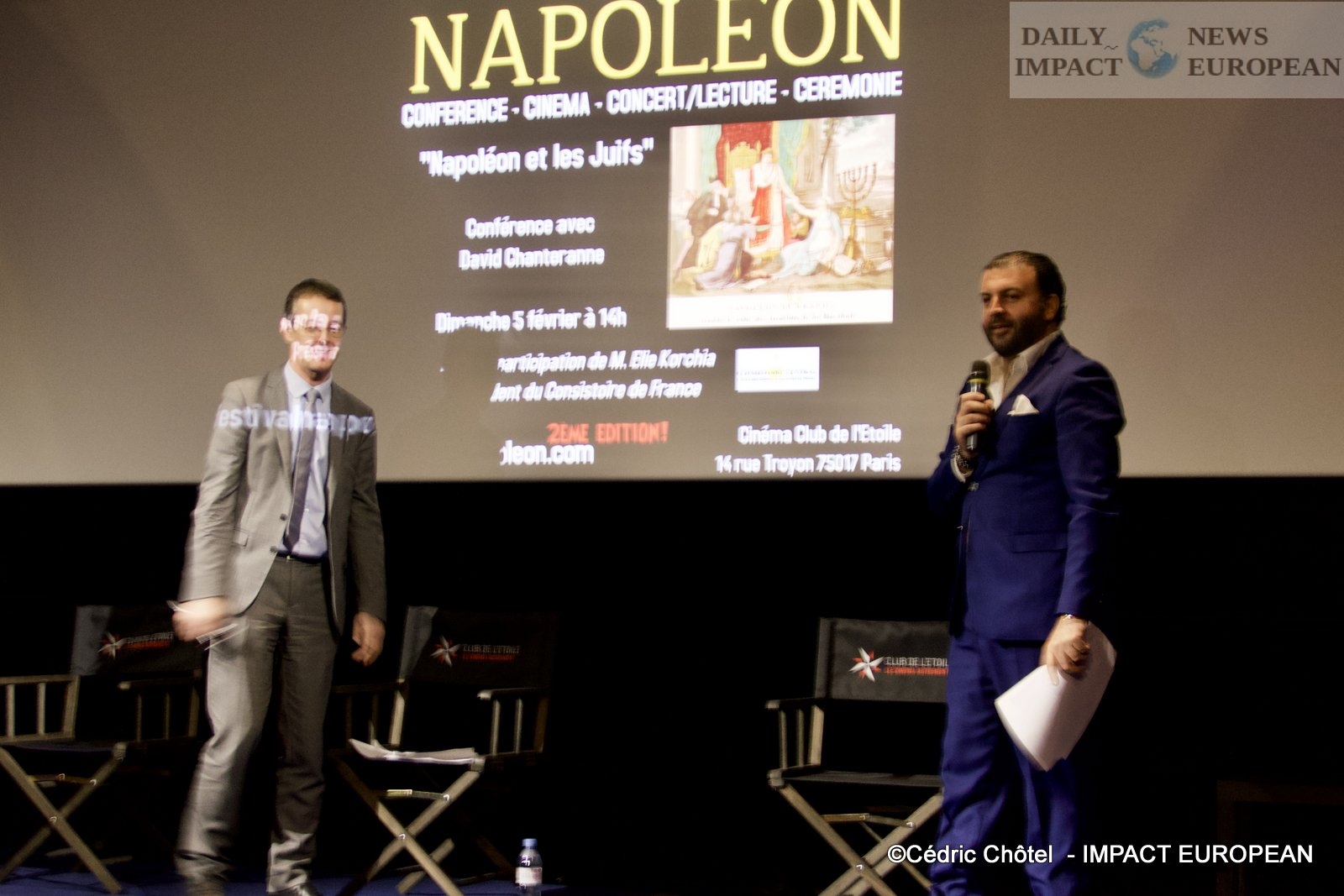
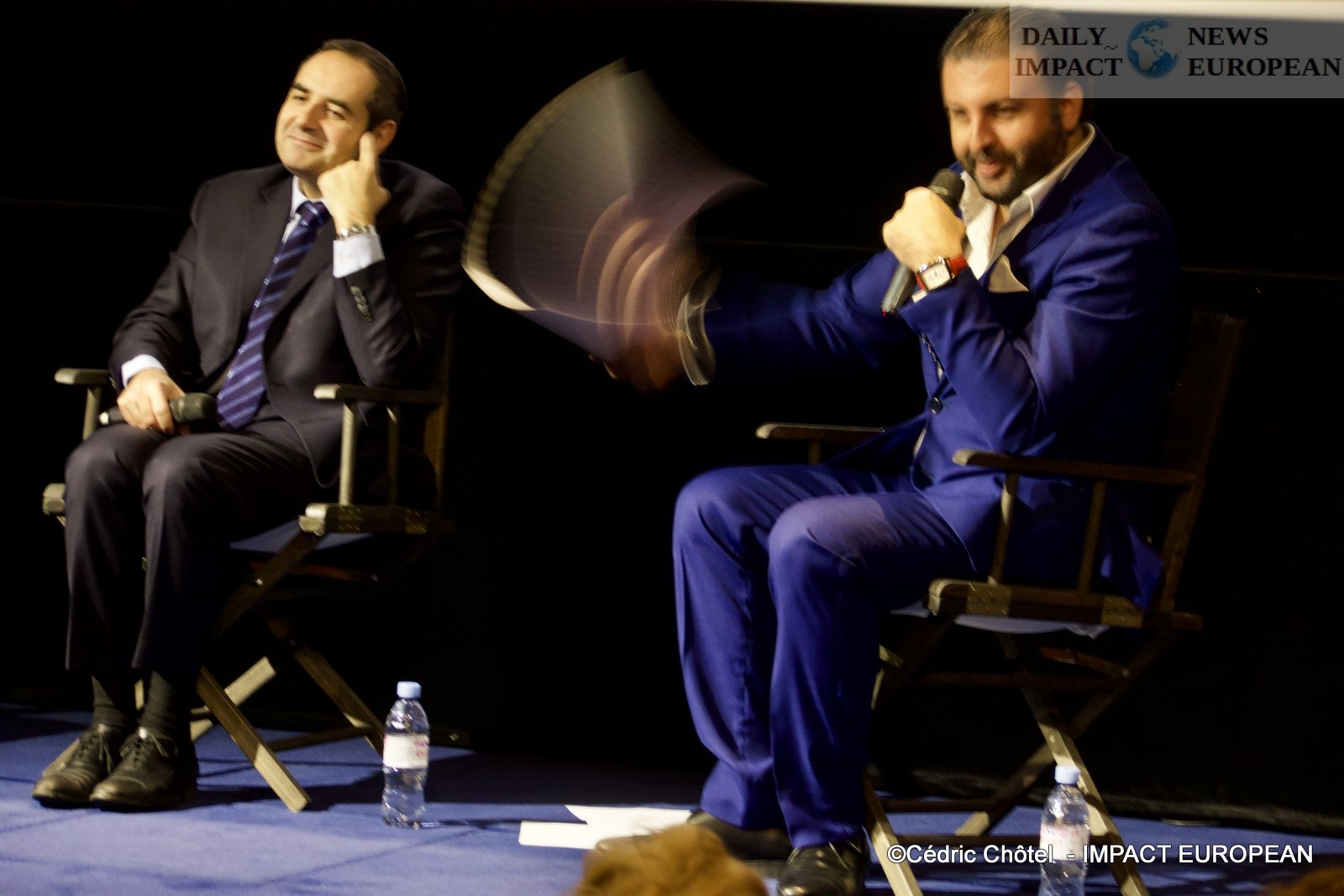
More Stories
Phenom 300E: The World’s Leading Light Jet for 14 Consecutive Years
Art Capital, 20 Years Already
Chers Parents Premieres in Paris